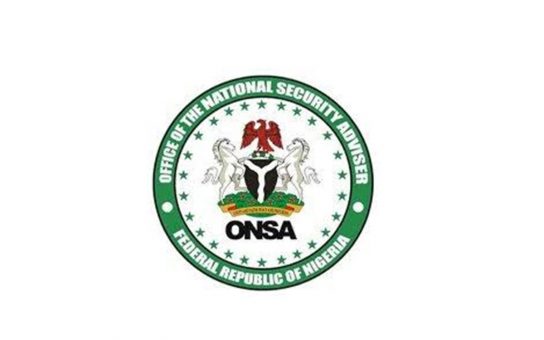The Nigerian aviation sector is undergoing a significant security overhaul aimed at eliminating operational inefficiencies, curbing touting, and streamlining security procedures for passengers. The Office of the National Security Adviser (ONSA) is spearheading this transformation by directing the implementation of a unified, “one-stop” screening system across all Nigerian airports. This centralized approach seeks to consolidate security checks, eliminating redundancy and improving passenger flow while simultaneously mitigating opportunities for corruption and illicit activities associated with multiple, uncoordinated screening points. This initiative signals a decisive move by the Nigerian government to prioritize aviation security and enhance the overall passenger experience.
The ONSA’s commitment to bolstering aviation security extends beyond the implementation of a streamlined screening process. A comprehensive security track assessment framework is also being developed to rigorously monitor and evaluate all airport and airspace operations within the country. This framework, involving a multi-stakeholder approach encompassing various sectors within the aviation industry, will provide a standardized mechanism for assessing risks and ensuring compliance with established safety protocols. By drawing expertise from diverse stakeholders, including airport operators, airlines, security agencies, and regulatory bodies, the framework aims to provide a holistic perspective on security vulnerabilities and facilitate the implementation of effective countermeasures. The framework’s focus on continuous monitoring and evaluation underscores a proactive, rather than reactive, approach to aviation security.
Furthermore, the ONSA recognizes the importance of inter-agency collaboration and information sharing in maintaining robust aviation security. The framework explicitly emphasizes the need for timely and efficient communication between stakeholders to effectively identify and address potential threats. This collaborative approach seeks to break down information silos and foster a unified front against security breaches. By leveraging the collective knowledge and resources of various stakeholders, the framework aims to create a more resilient and secure aviation environment. This initiative aligns with global best practices in aviation security, emphasizing the importance of coordinated efforts to mitigate risks and protect critical infrastructure.
The Director-General of the Nigeria Civil Aviation Authority (NCAA) has further reinforced the commitment to enhancing aviation security by mandating specific training and certification requirements for all aviation security personnel. All security personnel are now required to complete a three-step basic aviation security course designed to equip them with the necessary knowledge, skills, and competencies to effectively implement preventive security measures. This directive underscores the recognition that well-trained personnel are essential to maintaining high security standards. By investing in the training and development of its security workforce, the NCAA aims to create a more professional and competent security apparatus capable of responding effectively to evolving threats.
In addition to the mandatory basic training, all aviation security screeners are required to undergo a specialized certification process. This certification process focuses on the specific skills and knowledge required to effectively screen passengers, baggage, vehicles, and other items entering the secure areas of airports. The introduction of this certification requirement demonstrates the NCAA’s commitment to ensuring that security personnel possess the highest levels of proficiency in their respective roles. This specialized training will further enhance their ability to detect and prevent potential security breaches, strengthening the overall security posture of Nigerian airports.
The directive from the NCAA applies across the entire aviation ecosystem, encompassing all aerodrome operators, aircraft operators, air traffic service providers, cargo and mail providers, ground handling providers, catering providers, aviation security service providers, and other allied service providers. This comprehensive approach ensures that all stakeholders are aligned with the enhanced security standards and contribute to the collective effort to safeguard the aviation sector. By mandating training and certification across the board, the NCAA aims to create a culture of security awareness and responsibility throughout the aviation industry. This unified approach reinforces the message that aviation security is a shared responsibility and requires the active participation of all stakeholders. This comprehensive overhaul of aviation security protocols demonstrates Nigeria’s commitment to international best practices and its determination to provide a safe and secure environment for air travel.














